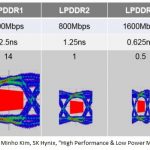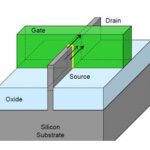The design of parallel interfaces is supposed to be (comparatively) easy — e.g., follow a few printed circuit board routing guidelines; pay attention to data/clock/strobe signal lengths and shielding; ensure good current return paths (avoid discontinuities); match the terminating resistances to the PCB trace impedance;… Read More
Electronic Design Automation
Fastest SoC time-to-success: emulators, or FPGA-based prototypes?
Hardware emulators and FPGA-based prototyping systems are descendants of the same ancestor. The Quickturn Systems Rapid Prototype Machine (RPM) introduced in May 1988 brought an array of Xilinx XC3090 FPGAs to emulate designs with hundreds of thousands of gates. From there, hardware emulators and FPGA-based prototyping … Read More
Top Ten Insights on the EDA and Semiconductor Industry
I recently had the opportunity to chat with Anirudh Devgan, senior vice president and general manager at Cadence, who leads the Digital and Signoff Group. We discussed recent product development initiatives at Cadence, and talked about future EDA and semiconductor market opportunities. His insights and comments were keen … Read More
Early Structural Reliability Analysis of a Chip-Package-System design is a must!
2015 will be remembered as the year when chip-package-system (CPS) physical co-design and electrical/thermal analysis methodologies took center stage.… Read More
Semiconductor, Oil, and GDP – Correlated? What’s Expected?
In last 3 decades of semiconductor market, the largest growth in IC sales was at 33% in 2010. At that time global recession had started due to financial crisis and in 2009 oil prices fell more than 30%. It appeared that oil prices were negatively correlated with semiconductor market growth. Today again there is another sharp decline… Read More
Synopsys’ New Circuit Simulation Environment Improves Productivity — for Free
When technology advances, complexities increase and data size becomes unmanageable. Fresh thinking and a new environment for automation are needed to provide the required increase in productivity. Specifically in case of circuit simulation of advanced-node analog designs, where precision is paramount and a large number… Read More
How 16nm and 14nm FinFETs Require New SPICE Simulators
About 35 years ago the first commercial SPICE circuit simulators emerged and they were quickly put to work helping circuit designers predict the timing and power of 6um NMOS designs. Then we had to limit our circuit simulations to just hundreds of transistors and interconnect elements to fit into the RAM and complete simulation… Read More
Let’s Reduce Wasted Energy in Server Farms
With the growth in streaming video and the promises of 50 billion IoT gadgets making our lives oh-so-much better, there is an alarming demand for online computational horsepower and bandwidth.
Why alarming? In 2014, data centers in the United States consumed approximately 100 billion kilowatt hours (kWh) of energy. According… Read More
Qualcomm goes in Data Center thanks to Google
The Server SoC at the heart of Data Center almost don’t care about power consumption, at the opposite of Application Processors for smartphone. If you design a server multi-core SoC, you target the highest performance, in fact a combination of high frequency and lowest possible latency, and try to pack as many CPU core and embedded… Read More
Supernovae and Safety
Whenever we push the bounds of reliability in any domain, we run into new potential sources of error. Perhaps not completely new, but rather concerns new to that domain. That’s the case for Single Event Upsets (SEUs) which are radiation-triggered bit-flips, and Single Event Transients (SETs) which are radiation-triggered pulses… Read More








A Century of Miracles: From the FET’s Inception to the Horizons Ahead